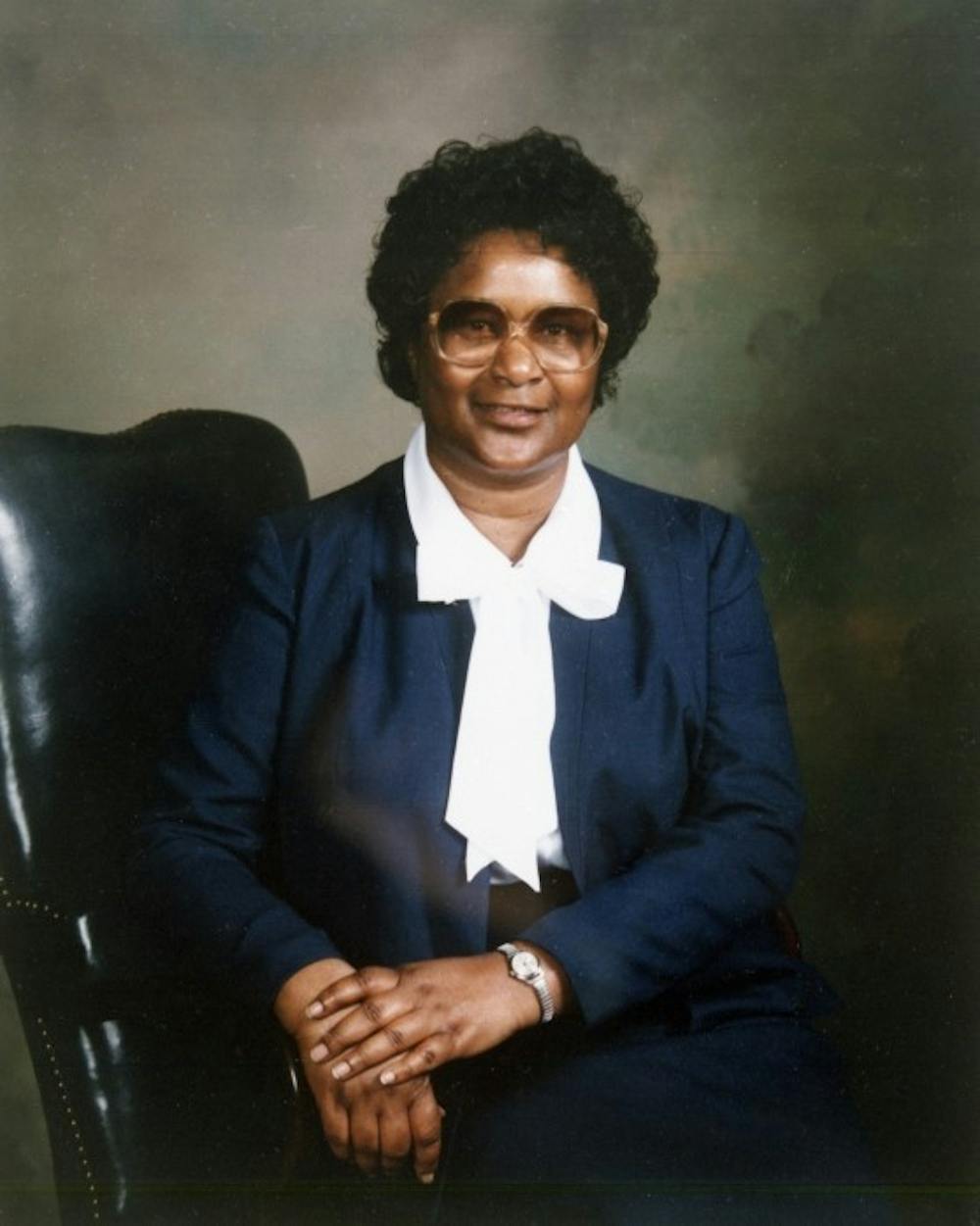Anthony Britt was an Auburn student in the early 1990s when he saw Bessie Mae Holloway, a member of the Board of Trustees, represent students who looked like her.
Britt, a member of Auburn's Black Student Union, was taking part in a sit-in protest of a fraternity's celebration of Confederate history when Holloway found out about the situation. She left a trustees meeting to join protesters.
“I can remember her quote directly: ‘If they would hit me or something as a Board of Trustee member, it would cause a ripple effect to stop this parade,’" Britt said. "Nevertheless, she stayed down there with us, and I will never forget her bravery.”
That moment is Britt's fondest memory of Holloway. There were no more parades following the protest. To see someone who looked like him in a position of power make an act of solidarity in an extremely volatile time showed him that the totality of Auburn's student body was being represented.
Holloway, the first black Auburn University Board of Trustee member and second-ever woman on the board, passed away on Sept. 11, 2019, at the age of 87.
Appointed by Gov. George Wallace to fill an unexpired term on the Board of Trustees in 1985, Holloway served as the trustee from the 1st Congressional District until 2000.
A life-long resident of Prichard, Alabama, Holloway devoted her life to education. She received her bachelor's degree from Alabama State University, master's degree from Xavier University and a doctoral degree from Auburn.
She spent over 25 years as a teacher and instructional specialist in the Mobile County, Alabama, public school system. She was a devoted member of St. James Major Catholic Church, where she served in various roles over the course of her life. Additionally, she was awarded the Pro Ecclesia Et Pontificate by the Pope.
For many black students and alumni, Holloway being on the Board of Trustees meant Auburn's culture was shifting in a positive direction.
Barbara Wallace-Edwards, a 1979 graduate, said she would have been shocked to hear that there were even a couple hundred black students at the time, let alone any African Americans in the administration.
"I left Auburn with a very bitter taste in my mouth because the experiences I had dealing with students who were racist and even some professors who were racist," she said. "It really warmed my heart to see that Auburn was branching out when Dr. Holloway came aboard as a trustee because it opened my eyes to see that Auburn was changing, the environment was changing."
Necole Floyd-Turner and her roommate were the second and third black members of the flag corps in the Auburn University Marching Band, but Floyd-Turner may have never had that opportunity if hadn't been for the impact of Holloway.
Recruited in the early 1990s by the Office of Multicultural Affairs, now the Office of Inclusion and Diversity, it was important for her to see people like Holloway providing representation to minority students, making recommendations on their behalf and bringing important issues to the forefront of the board.
"For me, it was really important coming to Auburn to see people who look like me, to see people who were majoring in the same thing I was and having those commonalities, not just as a person of color, but as part of the Auburn Family," Floyd-Turner said. "That's what her legacy meant to me."
Holloway's appointment to the Board of Trustees was a landmark moment in the history of Auburn. There's still work to be done, but Holloway's legacy shows how much cultural change can be accomplished when it's needed, Britt said.
“With her passing, it really saddened me to hear that,” Britt said. “ I hope that we can forge something in her memory with her bravery to be on the board, to represent not just the totality of the student body, but people who looked like her, and we could relate to her.”
Do you like this story? The Plainsman doesn't accept money from tuition or student fees, and we don't charge a subscription fee. But you can donate to support The Plainsman.





